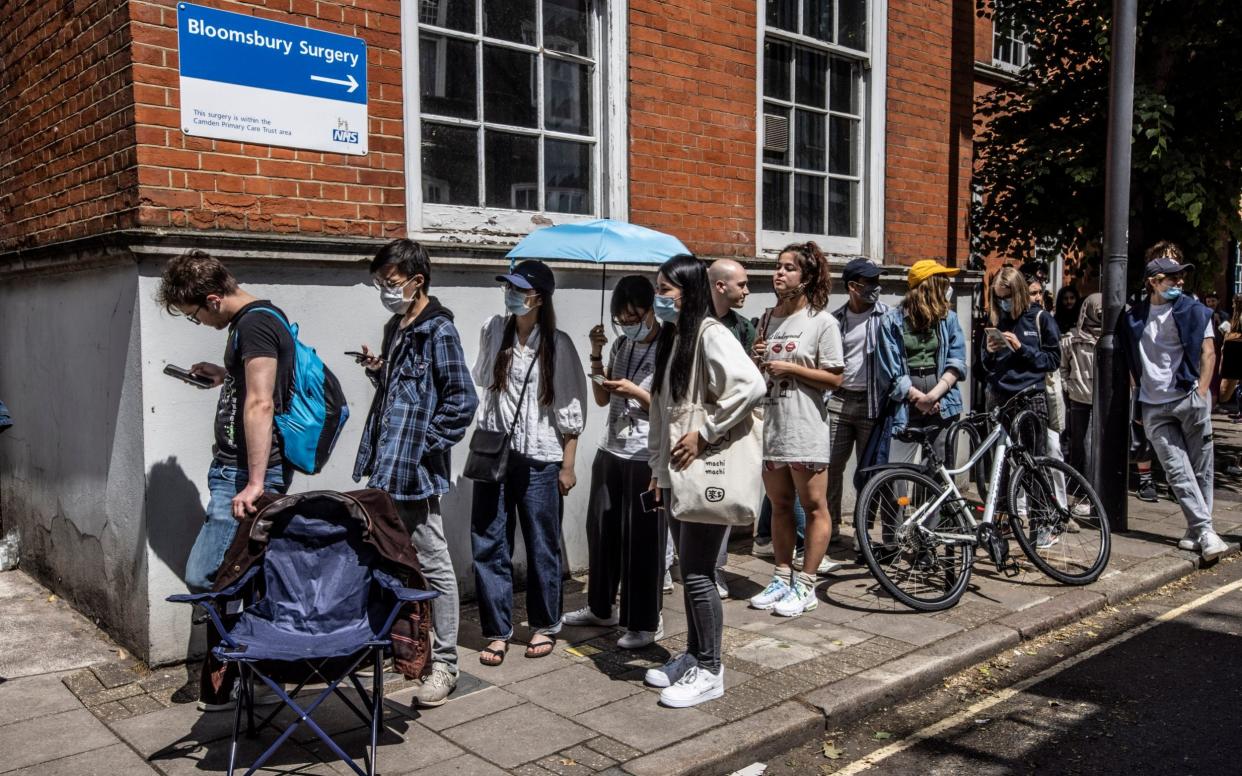Delaying decision on vaccinating university students ‘legally and practically impossible’

Delaying the decision on whether students need to be vaccinated to attend lectures is "legally and practically impossible", vice-chancellors have warned.
University leaders have said they are prepared to "engage, explain and encourage" about the importance of getting jabbed rather than impose restrictions on students who have not been fully vaccinated in time for the new academic year.
Earlier this week, it was reported that the Government is considering making it compulsory for university students to be fully vaccinated in order to attend lectures or stay in halls of residence.
On Thursday, Dominic Raab, the Foreign Secretary, said decisions on whether students needed to be vaccinated to return to campus would be taken in September.
He told BBC Radio 4's Today programme the Government would make sure that students, most of whom would be starting their new terms that month, had "advanced warning".
Asked whether vaccination would be advisory or compulsory for students returning to halls, he said: "When we come to the crunch, these decisions will be taken in September."
But university leaders hit back, with one saying a decision in September would make it "very difficult to implement both legally and also practically".
The vice-chancellor told The Telegraph that universities had been attempting to persuade ministers to drop plans that amount to "coercion" and said: "There is reluctance from the sector to this both in principle and in practice."
Tory MPs have also voiced disquiet, with Robert Halfon, the chairman of the education select committee, saying: "I'm strongly in favour of vaccinations and am glad to have had mine – but they should be encouraged by persuasion, not coercion, especially when it comes to getting an education."
Greg Smith, the MP for Buckingham, said it was "fundamentally undemocratic" to introduce vaccine passports for lectures because it would be "imposing a bar to entry which raises issues of civil liberty, inclusion, discrimination and intolerance which British universities traditionally have resisted".
Lawyers advising universities have pointed out that, when prospective students accept a place, they enter into a contract with the institution. If their vaccine status was not originally mentioned as part of this, introducing it as a requirement at a later stage could fall foul of both contact law and consumer law.
Likewise, many students have already entered into contracts with halls of residence and, if no mention of a vaccine passport was made when the contract was signed, it could be problematic to introduce it at a later stage.
The Association of University Legal Practitioners also pointed to public health legislation which would need to be amended to give the power to make vaccination mandatory.
Universities UK, which represents vice-chancellors, said it was prepared to support government campaigns aimed at encouraging young people to get vaccinated and to work with public health officials to set up pop-up vaccination sites over the summer and in the new academic year.
"Young people have made tremendous sacrifices during the pandemic and evidence suggests that vaccine intent remains high among higher education students," said Prof Julia Buckingham, the organisation's president.
"We remain confident that the overwhelming majority of students in higher education will take up the opportunity to be vaccinated and we will continue to take every opportunity to encourage that they do so."

 Yahoo News
Yahoo News 
